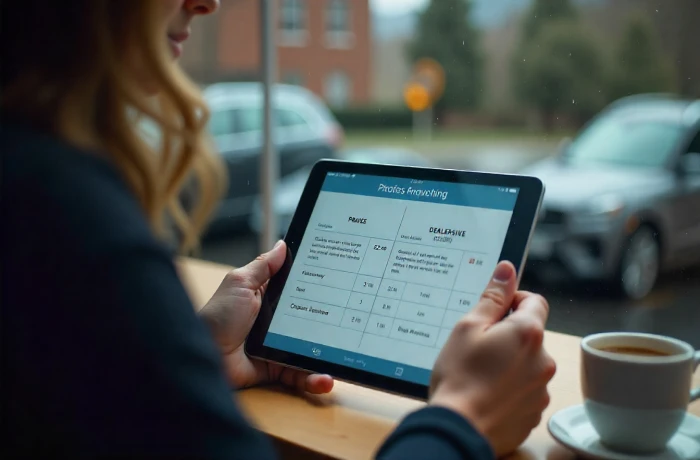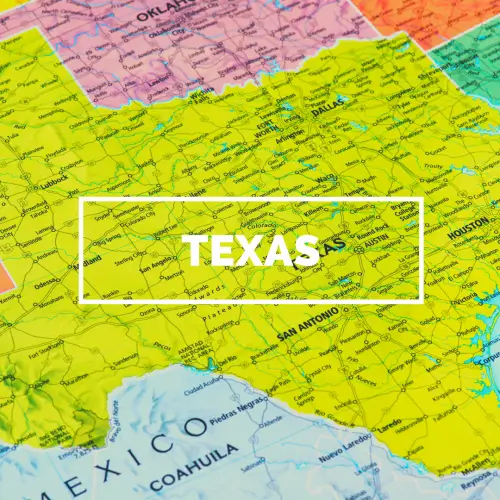Are you sure you know West Virginia’s unique car-selling rules? Selling a car in West Virginia is different from the process in nearby states. The laws and paperwork here have specific requirements that can catch sellers off guard.
Even one mistake can hold up the buyer’s registration or leave you responsible for a vehicle you thought you sold.
What You’ll Learn
In this post, you will learn:
What paperwork is required to sell your car privately in West Virginia
How to transfer ownership safely and in compliance with state law
Answers to common questions, plus tips to protect yourself and get the best outcome from your sale
Summary
Selling a car in West Virginia involves specific legal requirements and procedures, whether you're working with a dealer or a private buyer. This comprehensive guide covers everything you need to know to complete a successful vehicle sale in the Mountain State.
Required Documents for Selling
Essential Paperwork
To legally sell a car in West Virginia, the following documents are required:
West Virginia Certificate of Title signed by all owners (if multiple names joined by "AND," both must sign)
Valid driver's license or state-issued ID
Bill of Sale (Form DMV-7-TR) - required and must be notarized
Odometer disclosure statement for vehicles less than 10 years old
Lien release if there's an outstanding loan
Additional Forms You May Need
DMV-1-S Sold Vehicle Notice to notify the DMV of the sale
Application for Certificate of Title (Form DMV-1-TR) for the buyer
Pre-Sale Preparation
Vehicle Inspection Requirements
West Virginia requires a safety inspection every 24 months. If the inspection sticker has expired or is about to expire, update it before selling. The inspection costs a maximum of $19 and covers two years.
Inspection Requirements:
Safety glass, sheet metal, bumpers, fenders, and frame
Horn, rear-view mirror, windshield wipers, and plate mounting
Brake system (service and emergency brakes)
Front-end and steering components
Exhaust and fuel systems
Tires, wheels, lights, and safety devices
Document Preparation Checklist
Gather maintenance records to build buyer confidence
Verify title is clear with no liens or encumbrances
Complete odometer disclosure if the vehicle is less than 10 years old
Obtain lien release from lender if applicable
Clean vehicle inside and out to maximize value
Title Transfer Process
Completing the Title
Both seller and buyer must complete the title correctly:
West Virginia titles: Both parties must sign the back of the title
Out-of-state titles: Previous owner must sign; some states require notarization
VIN verification: Ensure the vehicle identification number on the title matches the vehicle
Odometer reading: Must not be less than what appears on the title face
Notarization Requirements
West Virginia requires notarized documentation for vehicle sales:
Bill of Sale (Form DMV-7-TR) must be notarized by both seller and buyer
Special circumstance: If selling for less than 50% of the vehicle value, a notarized bill of sale is mandatory
Sales Tax Information
Tax Structure
West Virginia imposes a 6% sales tax on vehicle purchases:
Vehicles over $500: 6% sales tax applies
Vehicles $500 or less: Flat $30 fee instead of percentage tax
No local taxes: Unlike many states, West Virginia has no additional local vehicle sales taxes
Tax Credits
Buyers can receive credit for vehicles they trade in, reducing the taxable amount. A notarized bill of sale for the traded vehicle must be presented within seven days of the new title application.
License Plate Procedures
Seller Responsibilities
When selling your vehicle in West Virginia:
Remove license plates before transferring ownership to the buyer
Keep the plates - in West Virginia, license plates belong to the owner, not the vehicle
Transfer plates to a new car or surrender them to the DMV
Complete notification: Submit the DMV-1-S form to notify the DMV of the sale
Plate Options After Sale
Transfer to new vehicle: Use Form DMV-44A-TR to transfer plates
Surrender to DMV: Required if moving out of state or no longer needed
Keep as memorabilia: Allowed once expired, but active plates must be surrendered
Private Sale Process
Step-by-Step Private Sale
Allow buyer inspection: Permit third-party mechanical inspection if requested
Negotiate price and terms: Use research from KBB, Edmunds, or local listings
Complete Bill of Sale: Use Form DMV-7-TR and have it notarized
Sign title properly: Both parties must sign with matching names on the title front
Collect payment: Use secure methods like a certified check or cash
Remove license plates: Transfer plates or surrender to DMV
Cancel insurance: After confirming the buyer has coverage
Notify DMV: Submit sold vehicle notice within the required timeframe
Payment Security
For private sales, accept only secure payment methods:
Certified bank checks from reputable institutions
Cash for smaller amounts (consider meeting at the bank for verification)
Wire transfers through verified banking systems
Avoid personal checks due to potential fraud risk
Dealer Sales vs. Private Sales
Selling to a Dealer
Advantages:
Quick transaction with immediate payment
No DMV paperwork - dealer handles title transfer
No liability concerns after sale completion
Convenient - one-stop transaction
Disadvantages:
Lower price - dealers need a profit margin for resale
Limited negotiation - dealers use wholesale pricing guides
Private Party Sales
Advantages:
Higher selling price - typically 15-25% more than dealer trade-in
Direct negotiation with motivated buyers
Complete control over terms and conditions
Disadvantages:
More time-consuming - marketing, showing, negotiating
Safety concerns - meeting unknown buyers
Paperwork responsibility - must handle all DMV requirements
Payment risk - potential for fraud or bounced checks
Special Circumstances
Selling Without Title
Selling without a title is possible but complicated in West Virginia:
Request a duplicate title from DMV using Form DMV-4-TR
Provide lien release if applicable
Complete affidavit explaining title absence
Expect delays in transaction completion
Gifting a Vehicle
When gifting a vehicle to family members:
Complete standard title transfer process
Use $0 as the sale price on the bill of sale
Still pay the title transfer fee ($10.50)
Recipient pays applicable taxes based on vehicle value
DMV Fees and Costs
Standard Fees
Title transfer fee: $10
New title fee: $10.50 for transfers
Notarization: $2-10 (varies by provider)
Inspection: Maximum $19 for 24 months
Additional Considerations
Property tax: May be assessed by the county assessor
Registration fees: Vary by vehicle class and weight
Late fees: Apply if transfers are not completed within the required timeframes
Selling a car in West Virginia requires attention to specific state requirements, but the process is straightforward when you follow proper procedures. Whether selling privately for maximum profit or to a dealer for convenience, ensure all documentation is complete, properly notarized, and submitted to the appropriate authorities.
Remember that West Virginia's 30-day deadline for buyers to complete registration makes prompt paperwork completion essential, and maintaining detailed records throughout the process protects both parties in the transaction.
Why Selling a Car in West Virginia Requires the Right Steps
Selling a car in West Virginia is not as simple as handing over the keys. If you skip even one required step, you could end up paying fines, being held liable for accidents, or waiting weeks before the sale is officially complete.
Think of it like following a recipe. Each step must occur in the correct order for the result to turn out as you want. The process here is straightforward when you follow West Virginia’s rules carefully.
Required Documents for Selling
You will need the following documents:
Certificate of title, signed by all owners listed
Valid driver’s license or state-issued ID
Notarized Bill of Sale (Form DMV-7-TR)
Odometer disclosure statement, if the vehicle is less than 10 years old
Lien release, if there was a loan
(Optional) DMV-1-S Sold Vehicle Notice to inform the DMV of the sale
Pre-Sale Preparation
Taking time to prepare your car and paperwork before selling helps avoid delays and builds trust with potential buyers. Follow these steps:
Inspect the vehicle. Make sure the inspection sticker is valid. West Virginia requires a safety inspection every 24 months. If it has expired, schedule an inspection. The fee is up to $19.
Clean the car thoroughly. Wash and vacuum the interior and exterior. Remove personal items. Consider minor repairs to improve appearance and value.
Gather records. Collect maintenance and repair records. Buyers often ask for proof of regular service and any major work.
Check the title. Make sure the title is in your name, matches the vehicle identification number (VIN), and shows no liens. If there is a lien, request a lien release from the lender before listing the car.
Complete the odometer disclosure. For vehicles under 10 years old, you’ll need to report the accurate mileage at the time of sale.
Notify your insurance company. Once you’ve found a buyer, plan to cancel your insurance after the sale is final.
Taking care of these details upfront can help you avoid last-minute problems when you find a buyer.
When preparing your car for sale, it's helpful to understand what buyers and appraisers look for. Factors like condition, mileage, and maintenance history all affect the value. Knowing the key factors used in a car appraisal can help guide you on what to repair or emphasize before listing the vehicle.
Title Transfer Process
The title transfer is the most crucial step in selling your car. Both you and the buyer must complete the title accurately to ensure a smooth transfer of ownership. Follow these requirements:
Signatures. Both the seller and the buyer must sign the back of the title. If more than one owner is listed and joined by “AND,” all listed owners must sign.
VIN and odometer. Verify that the vehicle identification number on the title matches the one on the car. Record the odometer reading and ensure it matches the mileage on the title.
Notarized Bill of Sale. Complete Form DMV-7-TR and have it notarized. This is especially important if the sale price is less than 50% of the vehicle’s value. Both you and the buyer must sign in front of the notary.
Accuracy here protects you from liability and ensures the buyer can register the car without complications.
Sales Tax Information
Vehicle sales in West Virginia are subject to state tax, which the buyer pays when registering the car. You should still understand how it works, especially if the buyer asks about it during the sale.
Standard tax rate. If the sale price exceeds $500, the buyer is required to pay a 6 percent sales tax based on the purchase price.
Low-value vehicles. If the sale price is $500 or less, the buyer pays a flat fee of $30 instead of the percentage tax.
Trade-in credit. Buyers can reduce their taxable amount if they trade in another vehicle as part of the transaction. They must show a notarized bill of sale for the traded vehicle within seven days when applying for the new title.
Although you do not collect the tax yourself, keeping a clear, notarized record of the sale price helps protect you if any disputes come up later.
License Plate Procedures
In West Virginia, license plates stay with the owner, not the vehicle. Once the sale is complete, you must handle the plates properly to avoid issues.
Remove the plates: Before handing over the car to the buyer, remove the plates. Plates are tied to your name and registration.
Transfer or surrender. You can transfer the plates to another vehicle you own using Form DMV-44A-TR, or surrender them to the DMV if you no longer need them.
Notify the DMV. File Form DMV-1-S (Sold Vehicle Notice) to officially inform the DMV that the vehicle is no longer in your possession. This helps protect you from liability if the buyer delays registration or drives the vehicle without updating ownership.
Handling your plates and notifying the DMV completes your part of the transaction and protects you from future responsibility.
Private Sale Process
When selling privately, you handle the paperwork, payment, and DMV notifications yourself. Follow these steps to do it correctly:
Prepare the car: Clean the interior and exterior, remove personal items, and verify the inspection sticker is current. Gather maintenance records and check that the title is clear of liens.
Advertise and meet buyers: List the car with accurate details. Meet serious buyers in a safe, public location. Allow them to inspect the vehicle or arrange a mechanic check if they request it.
Agree on price and payment: Negotiate a fair price based on market value. Accept only secure payment methods, such as a certified bank check, verified wire transfer, or cash at a bank.
Complete paperwork: Fill out and notarize Form DMV-7-TR (Bill of Sale) with the buyer. Both parties must also sign the title, recording the mileage and confirming the VIN.
Finish your responsibilities: Remove your license plates, cancel your insurance, and file Form DMV-1-S Sold Vehicle Notice to inform the DMV.
These steps help you transfer ownership properly while protecting yourself from liability.
Many private car sales take place through online classifieds such as Craigslist. Advertising your car correctly and handling inquiries professionally can make the experience smoother and safer. Following a step-by-step process for selling on Craigslist can help you avoid common mistakes while attracting serious buyers.
Dealer Sales vs. Private Sales
You can sell your car in West Virginia either to a licensed dealer or a private buyer. Each option has its advantages and tradeoffs.
Selling to a Dealer
Faster process. Dealers handle all paperwork and pay you immediately.
Lower sale price. Dealers offer less since they resell for profit.
Convenience. No need to advertise or meet with buyers.
Selling to a Private Buyer
Higher sale price. Private sales typically bring 15–25 percent more than a trade-in.
More effort. You handle advertising, screening buyers, and all DMV paperwork.
Greater control. You negotiate terms directly and set your price.
If you prefer convenience and speed, a dealer may be the better choice. If maximizing your return is more important and you don’t mind managing the process, selling privately is likely the better fit.
If maximizing profit is the goal, private sales often bring higher offers than trade-ins. Understanding where you can sell your car for the most money can help you decide between a dealer, a private party, or other options, depending on your timeline and goals.
DMV Fees and Costs
Selling a car in West Virginia involves a few standard fees that buyers and sellers should be aware of:
Title transfer fee: $10
New title issuance fee: $10.50
Notarization: Typically $2–$10, depending on the notary
Vehicle inspection: Up to $19 for a 24-month sticker
Additional costs can include property taxes assessed by the county or late fees if paperwork is not filed promptly. Preparing and submitting all forms on time helps avoid unnecessary charges.
Final Thoughts
Selling a car in West Virginia is a straightforward process when you follow the state’s requirements carefully. Preparing your paperwork, handling the title transfer correctly, and protecting yourself during the sale are all crucial steps in avoiding delays and potential liability.
Whether you choose to sell privately for a higher price or trade in at a dealer for convenience, understanding the steps outlined here will help you complete the transaction smoothly and confidently. Accurate records and proper DMV filings ensure the vehicle is no longer associated with your name.
By following this guide, you can move forward confidently, knowing the sale was handled legally and properly.
Need Help Shipping Your Car?
If you need to relocate the vehicle to a buyer in another city or state, we can assist in arranging safe and affordable auto transport. At AmeriFreight Car Shipping, we partner with a trusted network of carriers to deliver your car to its destination on your schedule.
We’ll walk you through your options, including open and enclosed transport, and help you choose what works best for your situation and budget.
When you’re ready to ship your car, get in touch and we’ll guide you through the process.
Frequently Asked Questions (FAQs)
What paperwork do I need to sell my car privately in WV?
Title signed by all owners, valid ID, notarized Bill of Sale (DMV-7-TR), odometer disclosure if the vehicle is under 10 years old, and lien release if necessary.
How do I transfer ownership of a car in WV?
Both parties sign the title, complete a notarized Bill of Sale, remove plates, and file a Sold Vehicle Notice (DMV-1-S).
Can a bill of sale be handwritten in WV?
No. You must use the official DMV-7-TR form, and it must be notarized.
How to transfer a car title to a family member in another state?
Complete the title and notarized Bill of Sale as usual. The family member handles registration in their state.
Disclaimer: This article is for general informational purposes only and does not constitute legal, financial, or tax advice. Please consult with the West Virginia DMV or a qualified professional to confirm current requirements and procedures before completing your vehicle sale.






















